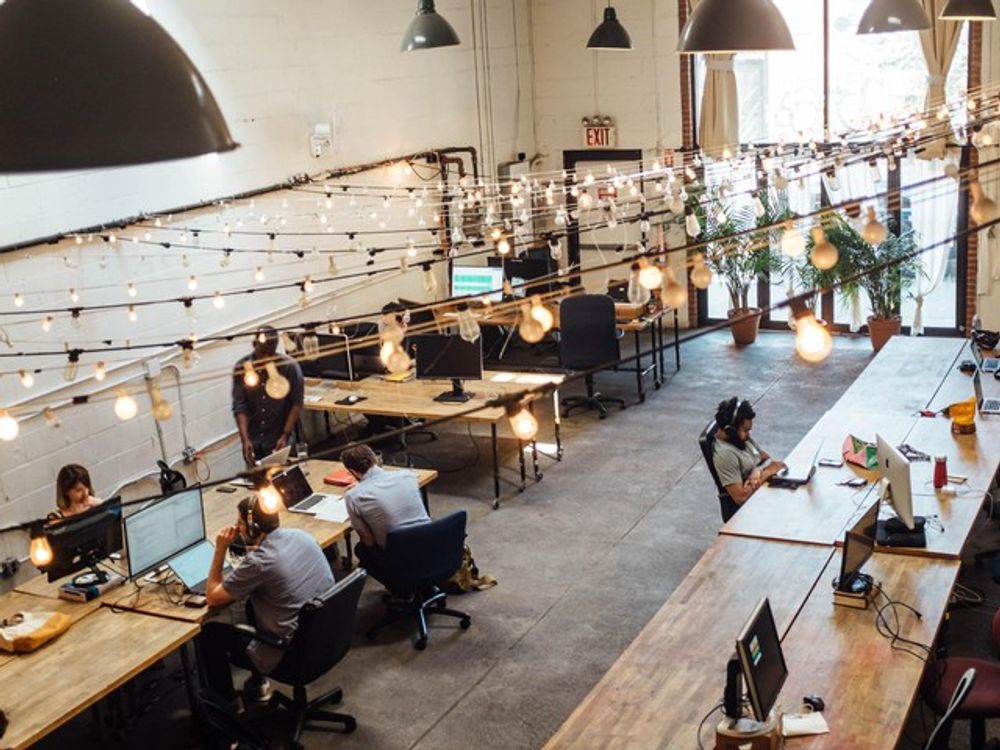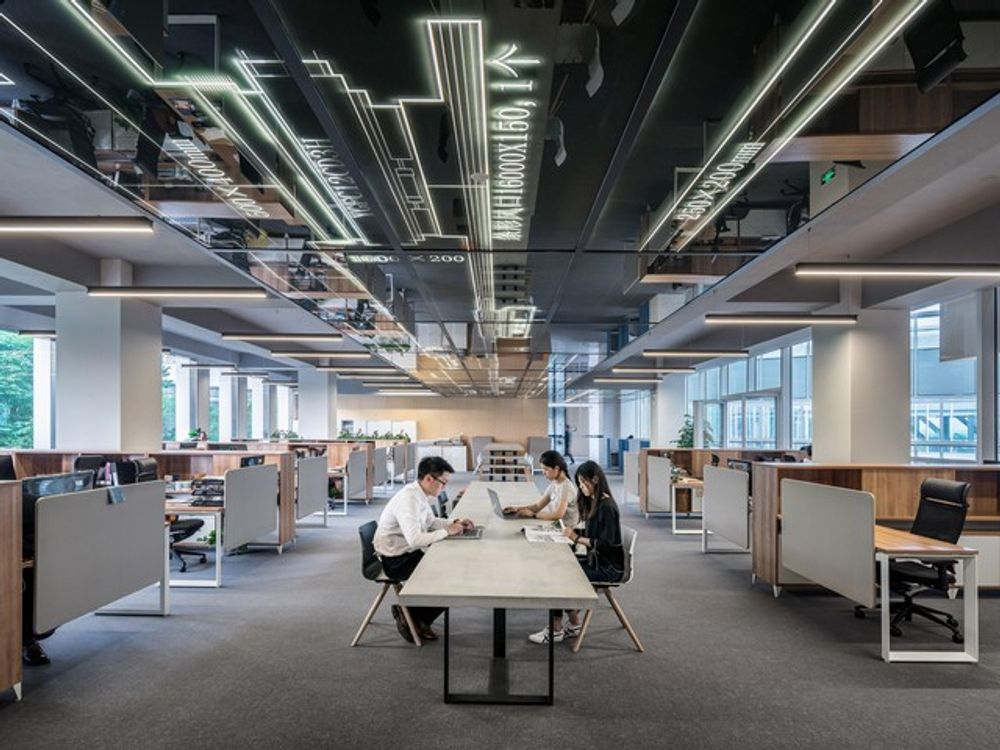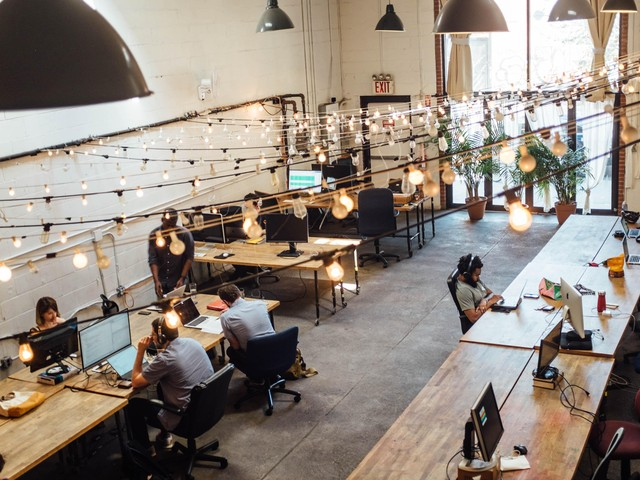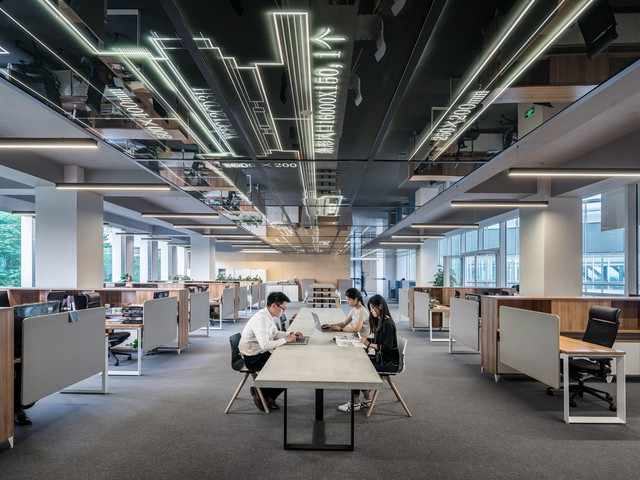From the green revolution to crowd funding, AI and the rise of the millennial manager, the business world is seeing a range of disruptors that are set to impact the commercial property market in 2019 and beyond. Let's take a look at five of the most significant trends shaping the sector right now.
1. Tenant-centric changes to working spaces
It's clear that the traditional business model is rapidly changing, driven by a combination of factors including technological innovation, cultural changes and the core values of today's emergent millennial workforce.
Gone are the days of all work and no play: millennials - who now make up the majority of the workforce and are starting to move into leadership positions - are completely mobile; not tethered to a desk from nine to five. They crave flexible working hours, more relaxed office spaces and the freedom to work wherever they are.
Today's workforce doesn't keep to business hours. It works hard, but it also plays hard - and often in the same spaces. Therefore, offices are no longer merely functional spaces; employees want entire experiences: think coffee bars, restaurants, recreational areas, gyms and of course, aesthetically-pleasing work spaces to round out the package.
Meeting these needs is essential if businesses want to continue attracting young, skilled talent to their ranks, which means developers and landlords need to be flexible enough to adapt their stock to meet these demands.
2. Shared and flexible work spaces
Mobility is a massive factor driving change in the commercial property world. Today's professionals can work anywhere their devices can take them (you'll now even find a Wi-Fi hotspot at the summit of Mount Fuji - if you're so inspired).
Working on the go means people still need desks, but only from time to time. Companies may require less space, as they have fewer full-time employees (think desk-sharing), while small start-ups still want the social and creative benefits of working in a buzzing office, but without the massive overheads - or space.
For them, as well as freelancers, part-time workers and remote employees, shared office space is a winning solution, offering Wi-Fi, essential infrastructure and valuable networking opportunities. Landlords who are able to find ways to divide larger office spaces or repurpose their stock will benefit in this market.
A slightly more sombre factor effecting this change is uncertainty. A tough few years have forced many businesses to scale back, cutting their space requirements and feeling more risk-averse even as they've begun to recover. For landlords, this means thinking about flexible or short-term leases for tenants with changing or uncertain business needs.
It's estimated that by 2030 - just over a decade away - around 30% of commercial property space could comprise flexible workspaces.
3. Green building practices
There's a global move towards more sustainable ways of living and working, the benefits of which are both environmental and financial. Green buildings consume less water and energy, and manage waste more effectively.
2019 will see more companies trying to get off the increasingly unreliable Eskom grid while also looking to implement greener building practices, particularly as the new Carbon Tax comes into play later this year. Businesses that are able to circumnavigate South Africa's inconsistent energy and water supplies are likely to enjoy more uptime and less disruption. What are you offering in terms of self-sufficiency, cost savings and energy reduction?
4. AI and predictive tech
Wi-Fi and fibre are relatively old-hat in 2019. Now, for a property to truly stand out, it should offer embedded technology that assists with effective facilities management and even help to predict tenants' and users' needs.
IoT (the Internet of Things) is an online network to which multiple devices can be connected, then managed and monitored remotely via smart phones or tablets. Being able to connect a building's devices and features to a single, centralised digital system not only streamlines operations but also makes them more efficient, convenient and cost-effective. This technology is rapidly becoming the norm in 2019, rather than the novelty it was five or 10 years ago.
5. Commercial property crowd-funding
It's still in its infancy, but the property crowdfunding market is already showing potential to significantly disrupt the commercial property sector in South Africa. Take for example WeWork - the world's fourth largest 'Unicorn' (a start-up valued at less than $1bn) - and its partnership with South African business SiSebenza. This collaboration is set to transform prime office space into shared office environments available for leasing across South Africa.
Partnerships like this aim to introduce highly successful, well-funded start-ups into Africa to accelerate technological change through disruptive business models - adding weight to the prediction that the commercial property space is set to look vastly different by 2030.
How are you adapting to these changes? How are you remaining competitive? There's much opportunity for local property owners and tenants alike, and in this new landscape, so many ways for both parties to derive maximum benefit from the properties they own and utilise.









